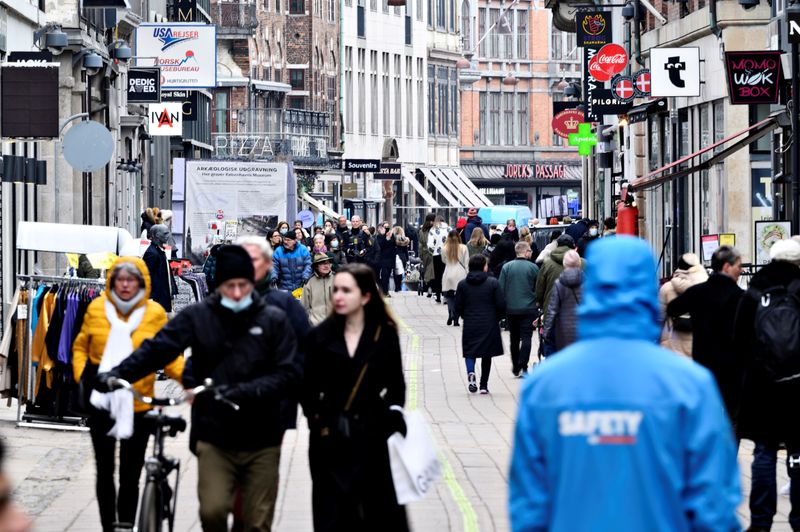COPENHAGEN (Reuters) – Denmark said on Friday it would reopen the economy sooner than expected as COVID-19 infections decrease, allowing indoor service at restaurants and cafes and football fans to cheer from the stands from April 21, weeks earlier than originally planned.
Denmark has avoided a third wave of the COVID-19 epidemic after imposing wide lockdown measures in December, which slowed the epidemic considerably to between 500-700 daily infections from several thousands in December.
Most of the planned reopening schemes are contingent on the use of a so-called “corona-passport”, which shows whether the holder has been vaccinated, has previously been infected or has taken a test within the last 72 hours.
“Denmark is in a good place with room for further reopening,” Minister of Justice Nick Hekkerup said in a statement.
“But it requires that we stick to the good habits, keep getting tested and continue to use the corona-passport to access some of the things we want,” he said.
As part of the deal agreed by the government and most of parliament early on Friday, the limit on outdoor public gatherings will be raised to 50 from 10 on April 21. The plan is to remove the ban on outdoor public gatherings on June 11.
The deal includes reopening of shopping malls, museums, libraries, indoor serving at restaurants and cafes, indoor sports for people under 18, and allows more students to resume classes.
Football fans will also be able to return to stadiums next week in separate sections each holding 500 spectators. All spectators must show corona-passports and will be registered with a view to trace any new outbreaks of the virus.
Denmark has developed a massive testing capacity, allowing some 200,000 people, or close to 4% of the population, to be tested each day. Authorities have used it to trace new outbreaks and shut down activities in certain parts of the country, while keeping the rest of the country open.
The Nordic country has the third lowest infection and death rate in Europe, behind only Iceland and Portugal, according the country’s Serum Institute.
Denmark this week became the first country to stop using AstraZeneca’s COVID-19 vaccine altogether over a potential link to a rare but serious form of blood clot, pushing back the scheduled conclusion of its vaccination scheme by weeks.
(Reporting by Nikolaj Skydsgaard and Jacob Gronholt-Pedersen; Editing by Toby Chopra and Kim Coghill)























